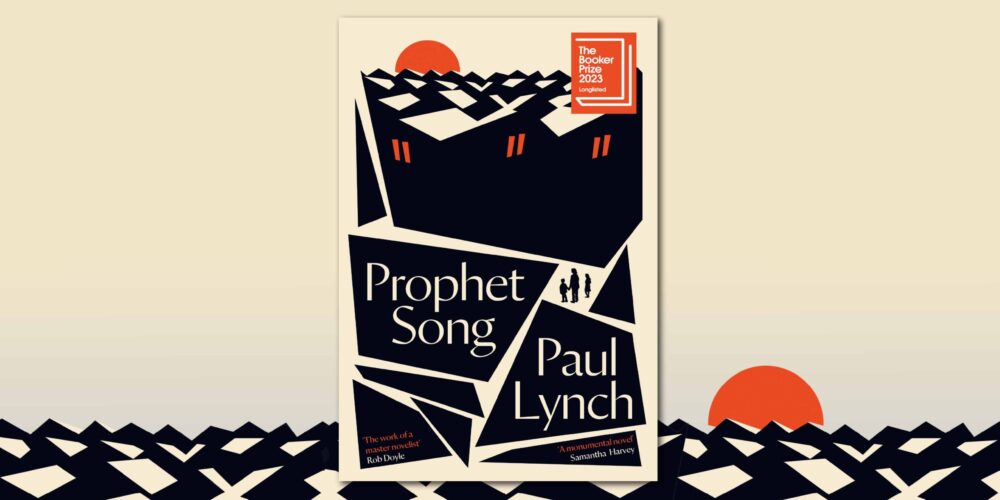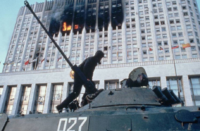Paul Lynch’s novel Prophet Song has deservedly been short-listed for this year’s Booker Literary Award. The author spins a chillingly realistic tale of an Ireland governed by a fascistic regime in the throes of an armed conflict with its local opponents. The regime’s definition of public order is maintained by a newly created Garda National Services Bureau, assisted by rigorously enforced media censorship.
The story is told through the eyes of Eilish Stack, a professional woman trying desperately to keep her family intact after the arrest and disappearance of her trade-unionist husband by order of the ever-present GNSB. Her distress is increased when her teenage son joins the insurgents and she is subsequently left unemployed, because her loyalty to the state is in doubt.
As the tale develops, the reader is taken from the disturbing era of a draconian police state into a dystopian period of intense and destructive street warfare in Dublin. Reluctant to abandon the hope of being reunited with her husband and son, Eilish refuses the opportunity to flee abroad, enduring mental and physical hardship as society around her is disintegrating.
All very well written and compelling; but really, would it not have been more realistic to have set the account somewhere else? Surely it would be more credible to have placed these events in some small African or South American country?
Well, actually, no. Apart from losing that “man bites dog” element of surprise by locating this novel somewhere other than Ireland, an invitation for deeper reflection would be missed.
While recognising this as a work of fiction, it surely raises the question of how credible the scenario being drawn by the novelist is. Is it remotely possible that the Republic’s century of parliamentary government might, under certain circumstances, morph into an authoritarian dictatorship?
What, for example, would be the response from a Fine Gael-Fianna Fáil coalition government in the event of another severe economic crisis if faced with popular demands for fundamental system change? What if debilitating austerity measures were causing a re-energised labour movement to call for abandoning the European Union in favour of aligning with the increasingly more powerful and therefore attractive BRICS?—a global partnership that includes China, imperialism’s current bête noire.
Could one envisage a situation, similar to that experienced by the characters in Prophet Song, where the state’s broadcasting agency has abandoned all impartiality, becoming a mouthpiece for the regime? Perhaps the subverting of journalistic standards might occur after the minister for the media dismisses the broadcaster’s entire management board following an interview with a troublesome trade union leader.
Well, it hardly stretches credulity in a state that retains its well-used censorship-enabling Section 31.
Would it ever be possible to imagine a special Garda unit similar to the secret GNSB being established, with enhanced powers of arrest and detention for those believed to be a threat to the state? Surely a country that, since its foundation, had emergency legislation on the statute book granting it power to suspend trial by jury, among other draconian measures, would hardly require another, yet more powerful agency. Nevertheless, a well-established precedent is there to be invoked.
What also is the likelihood that employment would favour supporters of the regime, or deny work to those deemed subversive, as recounted in Lynch’s story? A quiet word in an employer’s ear that “your man is one of them.” Maybe not so difficult to imagine when the history of the current state is considered.
In short, Paul Lynch has not just produced a literary masterpiece but has rendered a public service in alerting us to the reality of disturbing possibilities. The first chairperson of the Republic’s current governing party was, after all, a self-proclaimed fascist. And there are, undoubtedly, more than a few blue shirts stowed away quietly in wardrobes around this state.
Thank you, Paul Lynch and your Prophet Song, for reminding us to stay alert.
- Prophet Song by Paul Lynch is published by Oneworld Publications, London.






